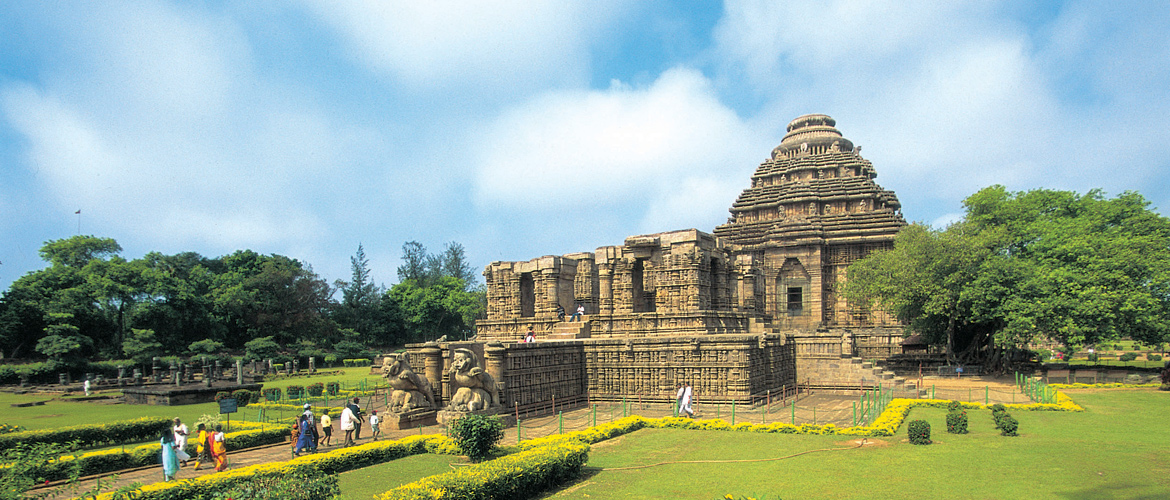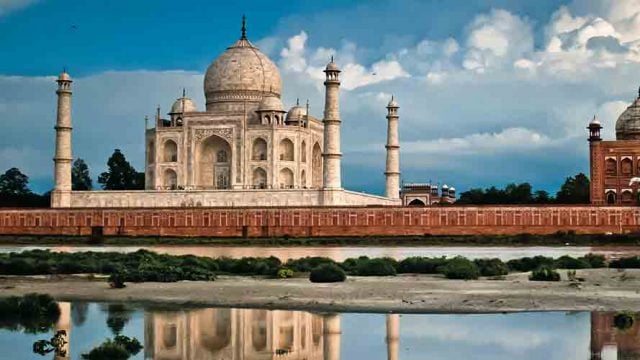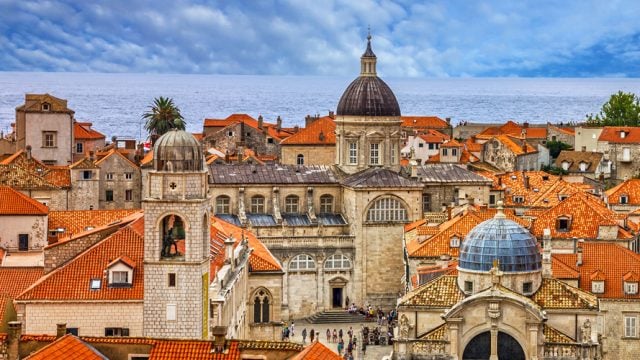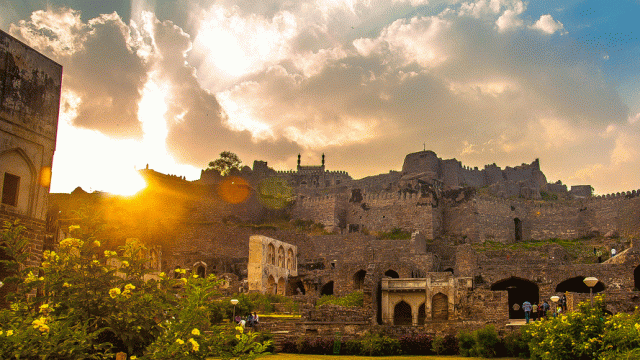About 34 km from Puri, via the smooth East Coast Road named Marine Drive, falls Konark. This
Modelled on the image of the Sun God coursing through heaven on his seven-horse-drawn chariot, the temple was built in the 13th century by the Ganga dynasty ruler, Narasimha Dev I (1258-64). Legend has it that it took 1,200 masons and 12 years to complete, and some engineers conjecture that the main tower, now reduced to rubble, would have soared to an imposing height of 227 ft, higher than both the Lingaraja and Jagannatha temples.
The jagmohana (porch) structure exceeds 120 ft in height. Both tower and porch are built on high platforms, around which are set 24 exquisitely carved giant stone wheels of the chariot, only 16 of which have survived the ravages of time. And of the seven horses, only one stands in all of a piece.

I enter the temple precincts, along with my guide, the 70-year-old Mr Sahoo, who claims to be the most ancient member of his tribe in Konark. We are greeted by two fiercelooking lions, one on each side of the steps leading up to the Natyamandapa, and elephants who, in turn, are sitting atop writhing men. My venerable guide tells me that the lion signifies power, the elephant connotes wealth and man stands for justice.
The walls of the Natyamandapa are full of interesting images. Sex is just one of the many themes albeit the most conspicuous. There are thousands of images of deities, celestial and human musicians, dancers, lovers, and myriad scenes of courtly life, ranging from hunts and military battles to the pleasures of courtly leisure. There are three beautiful and detailed sculptures of the Sun God on the northern, western and southern facades of the temple tower. Carved in an almost metallic green chlorite stone, contrasting the soft weathered khondalite of the rest of the structure, they reflect the superb craftsmanship of those times. There is even an image of an Indian king receiving a giraffe as a gift.
It took me almost two hours to soak in the awesome display of stone masonry and artistry. My mind brimming over with sexual images, I decided to say goodbye to this monumental feat of human indulgence.
The Information
Entry Fee: Indians ₹10, foreigners ₹250
Timings: Sunrise to sunset
Cameras: Still free, video ₹25
Guides ask for ₹200 upwards for their assistance, so bargain hard
Where to Stay: You can spend a night at Panthanivas Konark (Tel: 06758-236831; Tariff: ₹600- 1,000), near the Sun Temple, which has 14 rooms, a restaurant and can arrange local sightseeing; or at the Yatrinivas Konark (Tel: 236820; Tariff: ₹650-3,600), three minutes away from the Sun Temple. It has 41 rooms, a restaurant and garden, arranges transport and sightseeing and also provides tourist information.
heritage
India
Konark





